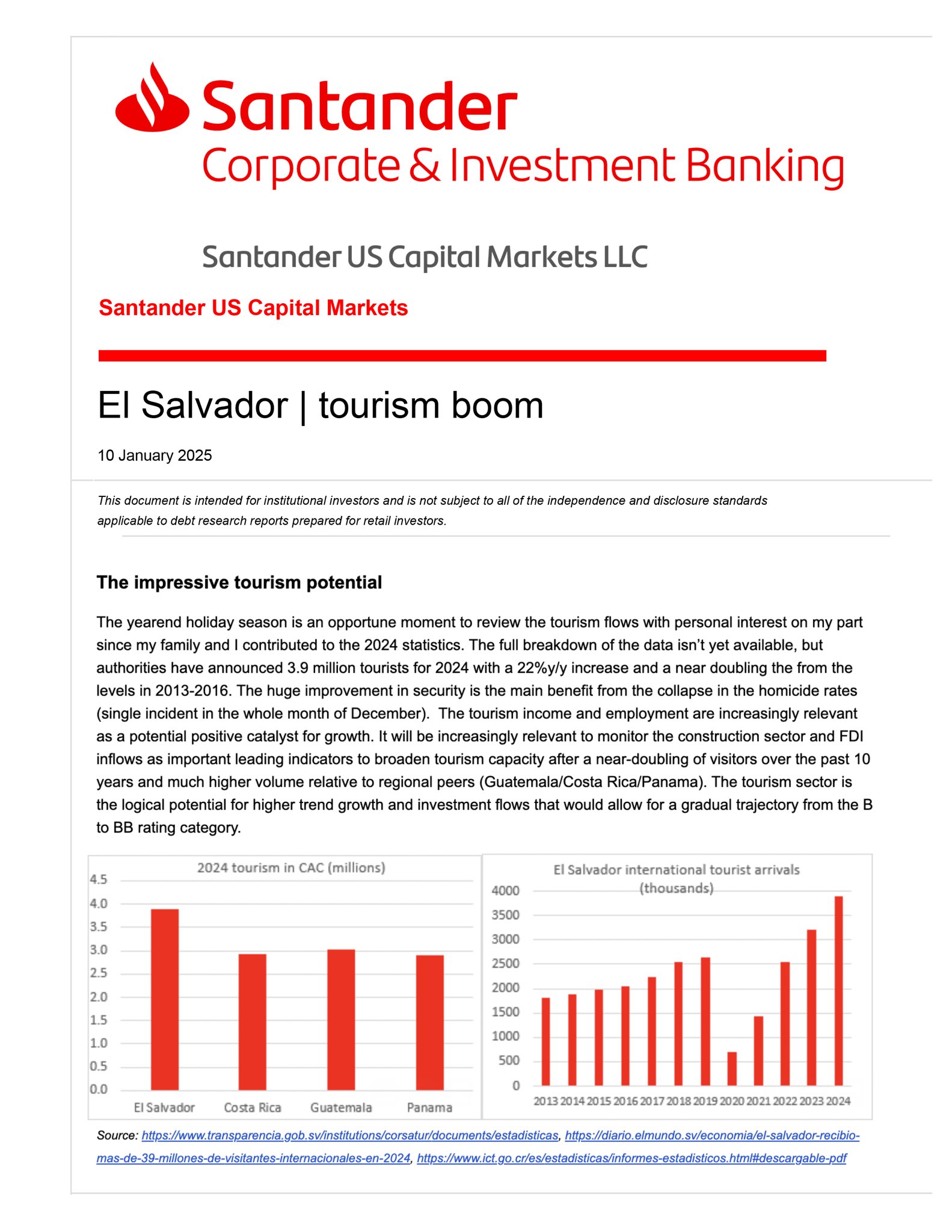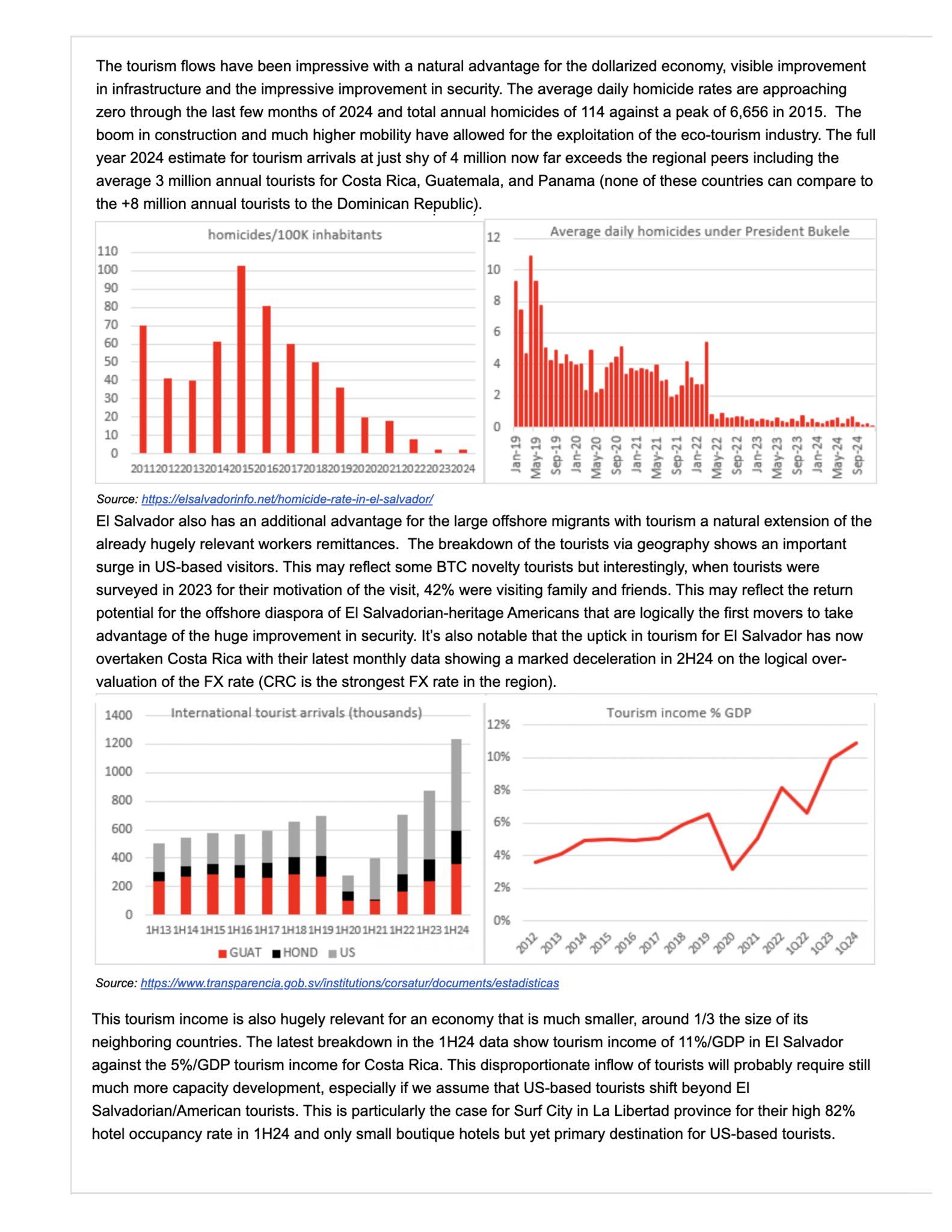Key Takeaways
- El Salvador’s tourism industry saw a 22% increase in 2024, with 3.9 million visitors.
- The country’s Bitcoin adoption has coincided with improvements in security and new inflows from the US.
Share this article
El Salvador sees a boom in tourism amid its Bitcoin adoption as a legal tender.
According to a recent report from Santander, Spain’s biggest bank, which was shared by El Salvador President Nayib Bukele, the country welcomed 3.9 million tourists in 2024—a 22% increase from the previous year. Visitor numbers nearly doubled compared to the period between 2013 and 2016.


The growth has been supported by dramatically improved security conditions, with December 2024 recording just a single homicide incident. Annual homicides dropped to 114 in 2024 from 6,656 in 2015, the report says.
Moreover, improvements in infrastructure and increased mobility have facilitated the growth of ecotourism.
The report also shows an important surge in tourists from the US, which may include some “BTC novelty tourists.”
Since many Salvadorans live and work in other countries, particularly the US, the improved security situation encourages them to visit their families back home, which contributes to the tourism sector.
El Salvador’s tourism growth has outpaced regional peers, including Costa Rica, Guatemala, and Panama, which average 3 million annual visitors each. If tourism continues to grow in El Salvador, it will attract more investment, which will strengthen the economy.
“The tourism sector is the logical potential for higher trend growth and investment flows that would allow for a gradual trajectory from the B to BB rating category,” according to the Santander report.
Scaling back Bitcoin policies
Under Bukele’s leadership, the country has actively promoted Bitcoin usage throughout the country and expanded its Bitcoin efforts through several initiatives, including the launch of the Chivo cryptocurrency wallet.
The adoption of Bitcoin has positioned El Salvador as a unique travel destination for crypto enthusiasts. However, the government’s recent deal with the International Monetary Fund (IMF) may in part limit the extent to which Bitcoin can be integrated into everyday transactions and economic activities.
Under the terms of the $1.4 billion loan agreement, the acceptance of Bitcoin by the private sector will become voluntary, and public sector engagement in Bitcoin-related activities will be confined.
The Chivo wallet designed to facilitate Bitcoin transactions and promote financial inclusion is set to be phased out.
El Salvador continues its Bitcoin buying spree
El Salvador still buys one Bitcoin each day regardless of market conditions. According to data from Arkham Intelligence, the country has amassed 6,024 BTC worth around $569 million as of today.
Apart from its daily acquisitions, it just added 11 BTC worth around $1 million to its strategic reserves on Wednesday.
Share this article
This post was originally published on here







